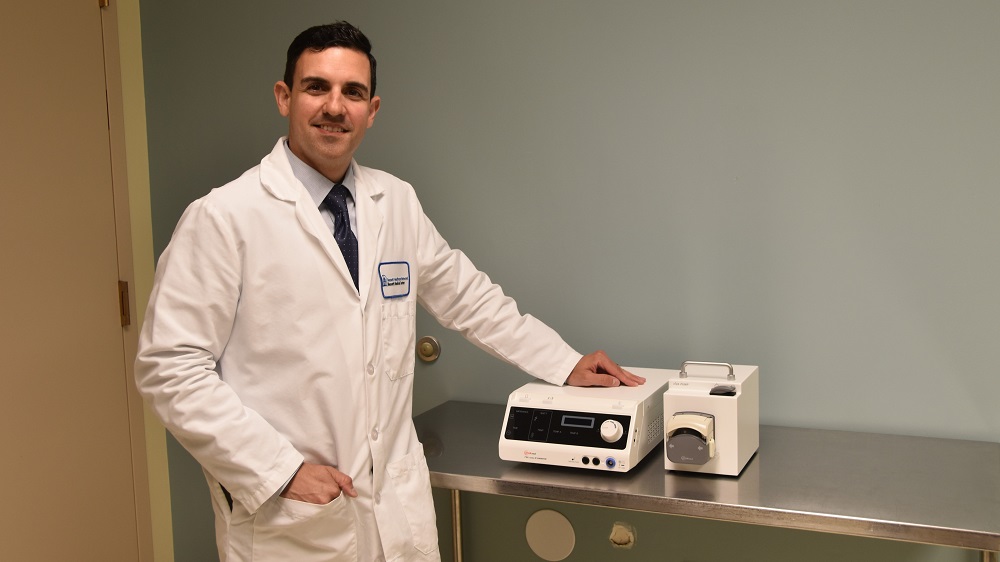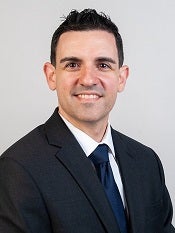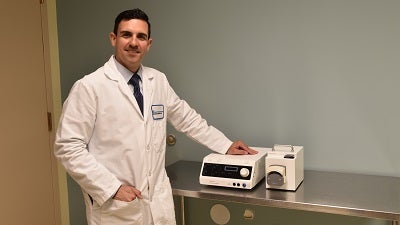Bassett Medical Center Now Offering Radiofrequency Thyroid Ablation Treatment
January 5, 2024
Hospital in Cooperstown the First New York State Location to Offer Treatment Outside of New York City
Cooperstown, NY – In Central New York, Bassett Medical Center is now offering radiofrequency thyroid ablation treatment for patients with non-cancerous thyroid growths. The hospital in Cooperstown, NY is the only location in the state to offer the advanced treatment outside of New York City.
The non-invasive approach to thyroid ablation is a simple outpatient procedure that uses an ultrasound-guided needle to deliver an electrical current to benign thyroid growths. The heat from the electricity shrinks the nodules. Treatment offers faster recovery, fewer complications, and no scarring. Patients generally return to normal activities within three days and usually do not need thyroid medication after the procedure.

“Most hospitals do not have the technology needed to perform radiofrequency ablation. Because of this, the most common way to treat both cancerous and non-cancerous thyroid growths is with surgery,” explains Dr. Anthony Ferrara, director of Interventional Endocrinology and Head and Neck Surgery, Division of Otolaryngology at Bassett Healthcare Network. “This can be complicated and always includes a risk of nerve damage to the vocal cords or parathyroid glands (which help your body control calcium levels). Surgery also requires a hospital stay. Plus, even after surgery, lifelong medication is often needed to supplement the thyroid hormone. Recovery after surgery can take several weeks.”
The thyroid, which is a butterfly-shaped gland in the neck, is a vital part of how the body’s functions are regulated. The thyroid controls things like heart rate and how fast the body burns calories. Growths commonly form on the thyroid as people age. Though most of these growths are non-cancerous, they can still cause problems with swallowing and speech and may require removal. Experts estimate as many as 50 percent of Americans will develop thyroid nodules by the age of 60.
Because radiofrequency thyroid ablation is a non-surgical treatment, patients do not experience any scarring and typically see a decrease in the size of their growth within two to four months. The procedure is also quick.
“We performed our first ablation recently on a patient,” says Dr. Ferrara. “Treatment took only 11 minutes after set up, and the patient was back at work the next day.”

"Over the last three years, before we acquired this new technology, Bassett performed more than 170 procedures to remove thyroid growths,” says Dr. Ferrara. “We expect that if COVID-19 had not curtailed many elective surgeries for part of that time, we likely would have seen many more. There is a huge need for this treatment. Now, not only can we accommodate more patients because treatment is simpler and does not require a hospital stay – people can receive this much more sophisticated, less-invasive procedure close to home. Offering this treatment at Bassett is a huge win for patients in our network’s area and beyond.”
About Bassett Healthcare Network
Bassett Healthcare Network is an integrated health system that provides care and services to people living in a 5,600 square mile region in central New York. The organization includes five corporately affiliated hospitals, over two dozen community-based health centers, more than 20 school-based health centers, two skilled nursing facilities, and other health partners in related fields. To learn more about services available throughout the Bassett Healthcare Network, visit www.bassett.org. Follow Bassett on Facebook, X (formerly Twitter), and LinkedIn. Bassett Healthcare Network is an equal opportunity provider and employer.
